20 apps to help provide easier access to legal help
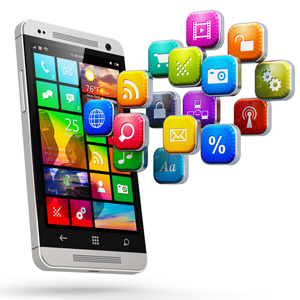
Image from Shutterstock.
“People talk a lot about digital technologies revolutionizing legal practice,” says Tanina Rostain, a law professor at Georgetown Law Center who teaches a course on the potential of Internet-based technologies for legal practice and pedagogy. “This is the area where the revolution is happening.”
Not surprisingly, among the earliest promulgators of justice apps are legal aid attorneys, who quickly realized that while many immigrants and low-income people can be intimidated by computers, many more know their way around a smartphone.
One of the more innovative apps of this type is Stop & Frisk Watch, which can record a police officer’s actions with the flick of a finger and shut down the app seconds later with a quick shake of the phone.
“The technology is never the hard part,” says Lisa Colpoys, executive director of Illinois Legal Aid Online, who helped champion a pair of apps that give her program’s clients easier access to its services. “Usually it is politics, turf, funding and other barriers that are the hard part to developing solutions.”
Also being helped by these apps are everyday folks who are confronted—and often confounded—by mundane legal challenges such as unfair parking tickets, questionable traffic violations, sketchy DWI stops and similar indignities. Instead of finding themselves hamstrung, people relying on these apps are able to deal with the legality of things from a much more informed vantage point. Moreover, the same apps can come in handy when alleged violators show up in a courtroom. Armed with a smartphone and an app, the accused can often step outside and get information or direction on the spot, says Ronald W. Staudt, a professor and pioneer of computerized access to justice at Chicago-Kent College of Law.
Adds Rostain: “Apps in this area not only give everyday people resources to solve their legal problems—they educate people about the law and empower them. In the end, we may end up with a more educated citizenry that can engage meaningfully in the political process.”
Even attorneys are finding new opportunities in access-to-justice apps, which sometimes enable them to prescreen prospective clients via email or real-time chat. It’s “an important technology for reaching a latent market of consumers who avoid resolving their legal problems for a variety of reasons,” says Richard S. Granat, CEO of DirectLaw and co-director of the Center for Law Practice Technology at Florida Coastal School of Law in Jacksonville.
Which apps are aiming to help close the access-to-justice gap? Here’s an overview:

Ask a Lawyer: Legal Help (Android, iPhone—free):
This app offers everyday people the ability to get preliminary legal advice from attorneys free of charge. Users can message attorneys via the application and also chat live. For attorneys, the app represents an opportunity to screen potential clients, and it could replace the free consultation many lawyers offer prospective clients.

BernieSez (iPhone—free):
At the very least, this app should win an award for efficiency. BernieSez allows users to take a picture of a ticket or other paperwork having to do with the charge filed, and upload it to the cloud, where scores of competing lawyers look over the case and compete to represent the user. Attorneys communicate their fees up front. Users are able to vet lawyers by comparing pricing, client reviews and attorney bios. Clients only pay if they decide to do business with a specific lawyer. The system allows participating lawyers to search for specific types of cases and bid only on those that interest them. The app also allows clients and lawyers to communicate about the case, verify court dates and the like.

CitizenshipWorks (Android, iPhone—free):
CitizenshipWorks walks eligible immigrants through the naturalization process. Using the app, they’re able to determine their eligibility to become a U.S. citizen, find out what documents they need to make it happen, and discover access to free and low-cost legal help for naturalization. They also can use the app to study for two key tests that are part of the naturalization process: English and civics.

Disastr (Web app—free):
This app—which took second place at the ABA’s Hackcess to Justice legal hackathon last summer—will greatly assist people affected by natural disasters like Hurricane Katrina and Superstorm Sandy. Essentially, it offers access to disaster relief, breaking news and links to legal professionals who can help in the aftermath of a catastrophe. Included is advice on getting food stamps and health care, and navigating insurance after a natural disaster.
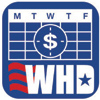
DOL - Timesheet (iPhone—free):
Hourly employees can use this app from the U.S. Department of Labor to double-check their paychecks after recording their own hours in English or Spanish. Essentially, it’s used to record the hours an employee works, and it automatically calculates overtime at time-and-a-half the regular rate of pay.
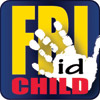
FBI Child ID (Android, iPhone—free):
Every parent shudders at the thought of losing a child to a kidnapper; parents in Puerto Rico who suffered that unthinkable act were able to rescue their missing 6-year-old boy last year with this app. FBI community outreach specialist Diana Rosa used the app’s onboard Q&A script to quickly secure key info about the boy from the child’s parents. One of the app’s questions prompted the boy’s father to remember an unusual characteristic of his boy’s front teeth. The captured data, along with the child’s digital image, was sent to FBI offices in San Juan. Armed with detailed info, the FBI was able to issue an extremely detailed press release about the boy. And hours later, the child was abandoned by his captors, recognized in a busy office park by a bystander and reunited with his parents.

Fixed (San Francisco only) (iPhone—free):
Anyone who’s been burned by a parking ticket in San Francisco will want this app the next time around. Snap an image of your ticket and enter the violation code. The app consults the Fixed database and comes back with the probability your ticket could be overturned, along with suggestions on how to fight an unfair ticket. (A no-parking sign might have been obscured by graffiti, for example.) Users who fight the ticket gather additional photo evidence if available, digitally sign the complaint and send it off to Fixed. The ticket busters look over your complaint and file the necessary paperwork with local authorities. If you win, Fixed charges you 25 percent of the fine you avoided paying.

Illinois Legal Aid App (Android, iPhone—free):
This app is out to demystify the law for everyday Illinoisans. The app features step-by-step guides for navigating the full spectrum of common legal challenges, including divorce, custody, small claims, eviction, foreclosure, guardianship and more. There are also scores of referrals to helpful organizations in each legal category.

LawZam (Web app—free):
This is one easy way for clients to find lawyers and lawyers to find clients. LawZam invites people with legal problems to visit its site and post legal questions that its lawyers answer with an initial free consultation. The app includes videoconferencing, so both parties can get a good look at one another before they agree to do business. And the best part: LawZam is free for both lawyers and consumers because the app is designed to make money from advertising.
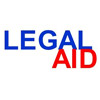
Legal Aid News (Android, iPhone—free):
This is a very handy tool for everyday people looking to keep up on the latest news in legal aid. Users can employ the app to search for general legal aid news or new developments in legal aid on a state-by-state basis, as well as updated info on national legal centers for low-income people and news on the Legal Services Corp. Also available is the National Legal Aid Finder app, which provides contact information and website links for legal aid programs around the country.
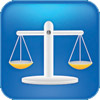
My Attorney Apps (Android, BlackBerry, iPhone—free for consumers):
It used to be that having your attorney’s phone number saved was proactive. This app is a complete, direct portal to your attorney on your cellphone. With My Attorney Apps, clients can store background information, witness information and photographs associated with cases, in addition to dialing or texting their attorneys. And clients can look at a collection of verdicts and settlements their attorney has won when considering the same attorney for a new case. Other fields allow input for background info on the law firm and a link to the law firm’s website. Another feature is checklists for dealing with everyday encounters with police. The app creator can customize this program for any law firm, and it can be distributed free to all clients and potential clients.

My Health Care Wishes Pro (Android, iPhone—$3.99, premium version):
My Health Care Wishes Pro is a handy app that allows users to store health care choices, instructions for end-of-life care and related info on a phone as a PDF, and it offers tips and links for planning health care wishes. It also allows storage for an unlimited number of people, living wills, health care powers of attorney, health care proxies, do-not-resuscitate orders and physician orders for life-sustaining treatment. Related info, such as details about personal health specialists, emergency contacts, insurance and any medical conditions can also be entered. All stored documents can be emailed to a health care provider. An ABA toolkit for use in most states is included. The app also syncs to Dropbox accounts.

‘Oh Crap!’ App (Android, iPhone—free):
Most of us have experienced that sinking feeling when the strobelike cherry flash of a police cruiser pops up in the rearview mirror. This particular app protects drivers from an overly aggressive driving-while-intoxicated stop. Punch a button on the app when you’ve been pulled over and it automatically spills advice, such as ‘The less you say the better’ and ‘Lawyer up.’ It also triggers an auto-audio-record feature and sends the file to a secure server in the cloud. There’s a ‘contact an attorney’ function that phones the nearest on-call attorney registered with the app. And in states where it’s legal, the app can also contact a local bail bondsman.
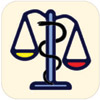
PaperHealth (Massachusetts only) (iPhone—free):
Everyday people in Massachusetts who don’t have the money or inclination to shell out for the creation of a living will can use this app instead. Developed by William Palin, a Cambridge attorney, PaperHealth won top prize at the ABA’s Hackcess to Justice legal hackathon last summer. The app also doubles as a health proxy creator for medical pros, attorneys and nonattorneys looking to quickly designate such a proxy.
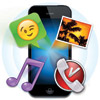
PhoneView (Web app—$29.95):
This is a viable solution for those involved in legal disputes who need printouts of texts buried in their iPhones. Essentially, PhoneView allows a user to view, save and print all iPhone, iPad and WhatsApp messages onto a Mac computer. Messages are exported as PDF files. Voicemail and video can also be exported.

Pocket DACA (Android, iPhone—free):
This is a helpful self-screening tool for foreign children living in the U.S. without the proper immigration paperwork. Essentially, it allows these kids to determine whether they qualify for a renewable, two-year reprieve from deportation by the U.S. Department of Homeland Security, under the department’s Deferred Action for Childhood Arrivals process. Included is a searchable directory of immigration legal services providers in all 50 states. And there are links to breaking news on DACA.

Sex Offender Search (iPhone—free):
Sex Offender Search offers up-to-date location and other information on individuals listed in the National Sex Offender Registry. Locations in a neighborhood are graphically illustrated. Users can pull up such info as address, date of birth and the charges filed against the offender. Similarly named apps with comparable features are also available on various platforms.

Shake (Android, iPhone—free):
Looking to put together simple business contracts? Shake offers a number of common business agreements in template form, including agreements for freelancers, buying and selling, loaning money and the like. Both parties sign the personalized agreements with their smartphones, and they’re done. The templates are created by licensed attorneys and are designed to capture important terms concisely and in plain English. But those who want to get creative can add their own wording or their own agreements. You can also use Shake to get the terms signed digitally.
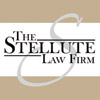
Stellute Law App (Virginia only) (Android, iPhone—free):
This firm’s app is designed for Virginia drivers who need guidance at an accident scene. It guides drivers through the process of gathering photo evidence and making audio recordings from accident witnesses. It also offers easy-to-follow directions about what to do legally after an accident. The app is a Swiss Army Knife for Virginia road warriors that includes video feeds from local traffic cams, weather alerts, GPS directions, info on the cheapest gas prices, and emergency numbers for medics, roadside assistance, taxi and towing.
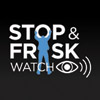
Stop & Frisk Watch (New York City only) (Android, iPhone—free):
While the NYC police say they’ve toned down their stop-and-frisk quota system, this app is designed to make sure. It allows a neighborhood bystander to record a questionable stop-and-frisk with just a flick of the finger. One quick shake of the phone, and the recording stops. A survey pops up after the recording is done, which can be used to text additional details about the stop. The entire report is designed to be easily forwarded to the New York Civil Liberties Union. Stop & Frisk Watch can also be used to auto-alert everyone in a community who is monitoring police stops. And there’s a “Know your rights” section for people unsure about what police can and cannot do during a stop-and-frisk.
Joe Dysart is a freelance writer, Internet speaker and business consultant based in New York City.
Write a letter to the editor, share a story tip or update, or report an error.


